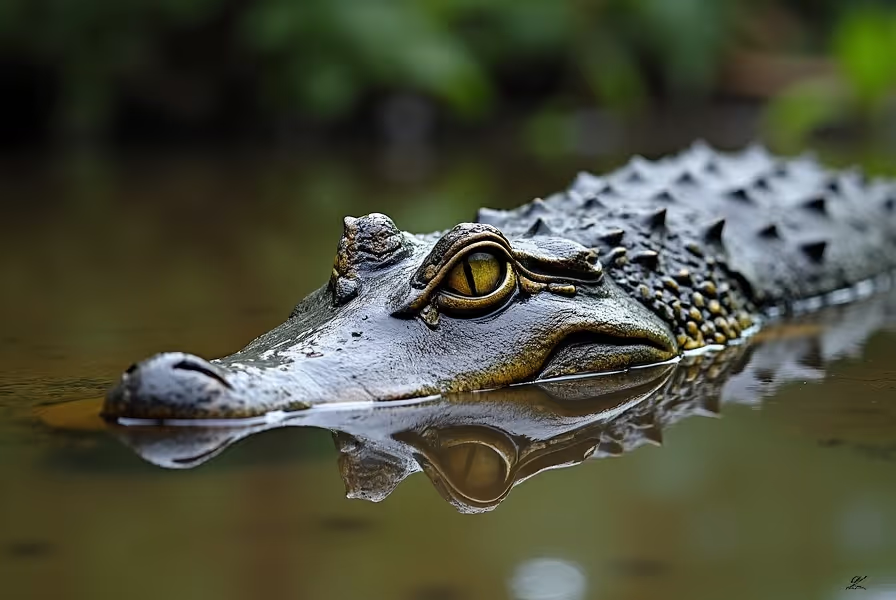Discovering the Presence of Alligators in North Carolina
When you think of alligators, you might picture the swamps of Florida or the bayous of Louisiana. But if you’re asking, “Are there alligators in North Carolina?” – the answer is yes. Alligator sightings have become more common across North Carolina’s coastal regions. This surprising fact brings both excitement and caution to residents and visitors alike. If you live in or travel to the Tar Heel State, understanding alligator facts, habitats, and safety can be valuable.
Where Do Alligators Live in North Carolina?
Alligators in North Carolina primarily inhabit the southeastern region of the state. Their population is concentrated near the coast and along slow-moving bodies of fresh or brackish water. Here are some key habitats where you might encounter these unique reptiles:
- Swamps and marshes
- Rivers, lakes, and ponds
- Canals and retention basins
- Low-lying coastal areas within state parks and wildlife refuges
Popular areas for alligator sightings include the Shallotte River, Green Swamp, Lake Waccamaw, and parts of the Cape Fear region. The majority of alligator reports come from counties like Brunswick, New Hanover, and Pender.
How Common Are Alligator Sightings in North Carolina?
The alligator population in North Carolina is small compared to southern states, but it is slowly growing. According to the North Carolina Wildlife Resources Commission (NCWRC), there are an estimated 1,000 to 2,000 wild alligators in the state. Most range from the South Carolina border up to Dare County, with rare sightings farther north.
Alligator encounters happen most often during the warmer months when these cold-blooded reptiles are more active. In the last decade, reports have increased as people move into coastal areas and alligator numbers rebound after past declines.
Why Are There Alligators in North Carolina?
Alligators are native to the southeastern United States. Their historic range has always included parts of North Carolina. However, habitat loss, hunting, and cold winters once pushed them close to extinction in the state. With legal protections and wetland conservation, alligators have slowly made a comeback.
North Carolina is at the northern limit of the American alligator’s range. Their distribution here is limited by temperature. Alligators are less tolerant of cold, so you aren’t likely to find them in central or western North Carolina.
What Should You Do If You See an Alligator in North Carolina?
If you spot an alligator, it is best to observe from a distance. Wild alligators rarely attack humans, but they can become aggressive if provoked or approached. Here are some key safety tips:
- Do not swim in or near water where alligators are known to live, especially at dawn or dusk.
- Keep pets and children away from the water’s edge in alligator habitats.
- Never feed alligators. This alters their natural behavior and can make them lose their fear of humans.
- Report nuisance alligators or inappropriate behavior to local wildlife officials.
Alligators are protected by state law in North Carolina. Only trained professionals should attempt to relocate or handle them.
Difference Between Alligators and Crocodiles in North Carolina
Many people ask if crocodiles also live in North Carolina. The American alligator (Alligator mississippiensis) is the only crocodilian species native to the state. Saltwater or American crocodiles are found only in far South Florida. You’ll sometimes hear locals call alligators “gators,” but don’t be confused—true crocodiles have never been naturally found this far north.
Best Times and Places to See Alligators in North Carolina
If you’re hoping to spot wild alligators safely, your best chances are during late spring through early fall. They bask in the sun on logs or banks and are more active in warm weather. Some good wildlife viewing spots include:
- Lake Waccamaw State Park
- Green Swamp Preserve
- Shallotte and Lockwood Folly rivers
- Carolina Beach State Park (near backwaters and marshes)
Use binoculars for safe and respectful observation. Remember—don’t approach, feed, or harass wildlife.
Frequently Asked Questions About Alligators in North Carolina
Are alligators dangerous in North Carolina?
Alligators are large predators and should be respected. Attacks on humans are extremely rare in North Carolina. Most incidents result from people swimming in alligator habitats or feeding them. Always follow safety guidelines and keep your distance for your protection and the animal’s wellbeing.
How far north do alligators live in North Carolina?
Alligators are found as far north as the Albemarle Sound, occasionally in Dare County. Most remain south of New Bern. They do not live in the mountains or Piedmont because it gets too cold.
Can you find alligator nests or babies in North Carolina?
Yes, alligators in North Carolina do nest and reproduce in the wild. Females build mounded nests near the water during late spring to early summer. Hatchlings emerge later in the season. Always keep your distance from nests and young alligators, as the mother will defend them.
Is it legal to hunt or kill alligators in North Carolina?
No, alligators are protected by state law. There is no open hunting season for alligators in North Carolina. In rare situations, special permits for alligator management may be issued to help with specific conflicts, but this is handled by wildlife officials, not private citizens.
How big do alligators get in North Carolina?
Most alligators in North Carolina are between 6 and 10 feet long. Rare individuals can grow larger, with adult males reaching up to 13 feet. However, due to northern climate limits, truly massive alligators are uncommon here compared to southern states.
Living with Alligators: Safety and Conservation in the Tar Heel State
If you share the outdoors with alligators in North Carolina, focus on education and coexistence. Respect wildlife laws. Give these ancient reptiles space to live and thrive. Support local conservation efforts and preserve wetland habitats for future generations.
Should you find yourself enjoying North Carolina’s beautiful coast and waterways, stay observant and informed. With a bit of knowledge and awareness, you can safely experience the natural wonder of American alligators in their northernmost home.









.svg)



